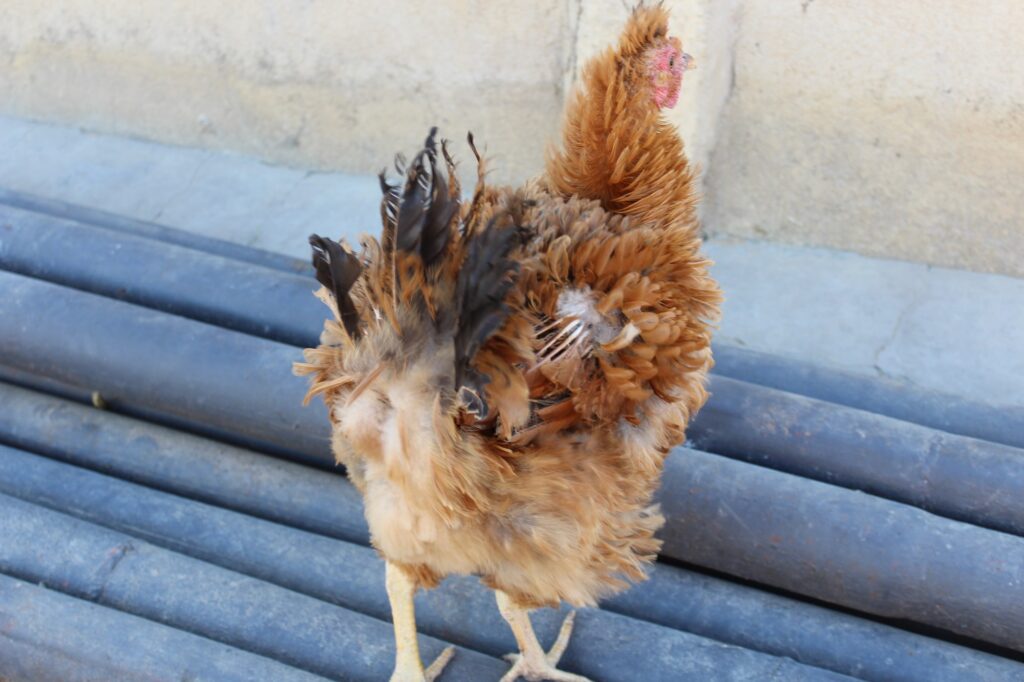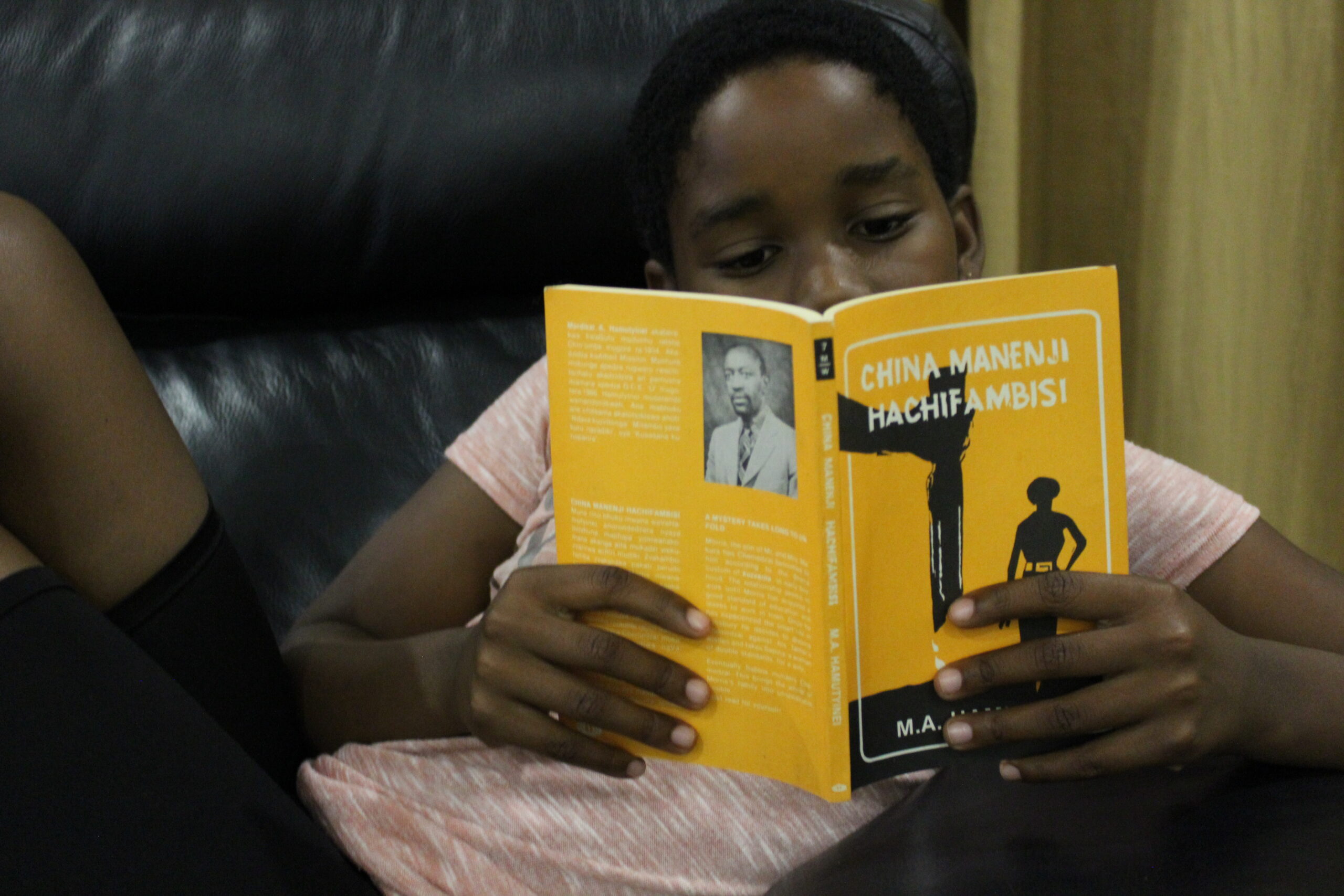China manenji hachifambisi, chinomirira kuti mavara acho aonekwe
While reading the novel China manenji hachifambisi, I was intrigued by the idioms (madimikira) used in the story. This brought back memories of the countless Shona and English novels I read as a child. In particular, I remember how we would swap books, and set targets with a group of friends on the number of books to complete over a time period.
The title of this book is adapted from the Shona proverb (tsumo), China manenji hachifambisi, chinomirira kuti mavara acho aonekwe. I would translate this as, ‘A shocking occurrence does not happen instantly; a number of peculiarities are witnessed ahead of it.’ Translated by the author himself, Hamutyinei M.A, the book title in English is, ‘A mystery takes long to unfold.’
A crisis or bad situation is often preceded by small undesirable incidents, building up over time. Only after the bad thing has happened do people manage to make sense of all the prior happenings. The message here is to be diligent enough to stop something before it has an opportunity to develop.
Madimikira create vivid imagery
The variety of expressions used to tell the story create imagery so vivid, I am sucked right into the center of each scene, almost as if I have traveled back in time. It is as if I become the story’s main character, a character the writer forgot – the reader. A host of idioms (madimikira) help dress up and color this story of coldheartedness and deception.
Below are some of the madimikira I came across as I read this story. Each of them is given together with an explanation and how it was applied by the writer.
- akazvitakura
- kubata hana
- kubaya gudo nemukanwa
- kudya mari
- kufumobata muromo wejongwe
- kufurwa nemhepo
- kugurwa makumbo
- kunzwa pava nemwoyo
- kuseurwa makotsi
- kutaura seune muti mukanwa
- kutorwa moyo
- kutsika matama enzira
- kutsvaga nameso matsvuku
- kuva mudenga rechinomwe
- kuve zai regondo
- kuzvidya moyo
- pamuromo hapachina nhunzi inomhara
- vakatodenha mago enhuruka
- vakatura femo
- zvisina musoro
1. akazvitakura
This means that the woman in question is pregnant.

Sabina told Morris to desist from frustrating mukadzi akazvitakura.
2. kubata hana
To be calm, as opposed to being unruffled or frightened by something you have experienced, seen or heard. Perhaps this is inspired by the idea of trying to steady the heart, since fright often results in the heart beating faster.
While looking for his goats, VaMakura caught sight of the corpse of a woman. Vakabata hana semunhu mukuru, and drew closer to the corpse to take a good look.
3. kubaya gudo nemukanwa
To completely satisfy the standards, expectations or aims in a given context.

VaPfocho thanked VaGogoti for the great tasting beer and handed back the drinking gourd. She remarked, ‘ndingati mabaya gudo nemukanwa nhai VaGogoti,’ as she made a request for another helping.
4. kudya mari
To spend money lavishly.
Friday was payday for most of those who worked in Harare. On this day, each one would want kudya mari yake in a pleasurable manner.
5. kufumobata muromo wejongwe
Roosters have always been known to crow around daybreak. This idiom refers to rising up very early in the morning before daybreak.

On the day that followed, VaMakura and Chemedzai vakafumobata jongwe muromo so as to catch the first bus to the city.
6. kufurwa nemhepo
To take a break from work. To spend time on leisure and recreation.

It was the end of the school term, so VaChagwiza decided to visit his rural home somunhu aidawo kufurwa nemhepo.
7. kugurwa makumbo
To be stunned or shocked immensely.
VaMakura went to inform the village headman of Chemedzai’s death. When the headman heard the story, yakamugura makumbo.
8. kunzwa pava nemwoyo
This is a feeling of satisfaction or contentment, say after enjoying good food and drink.

VaPfocho gulped down the beer as some dripped from the sides of her mouth. Only after shasha yanzwa pava nemwoyo, did she stop and place down the drinking gourd.
9. kuseurwa makotsi
‘Kuseura gotsi’ means to gossip about someone, while ‘kuseurwa gotsi’ means that one is the subject of gossip. The word ‘seura’ means ‘hollow out.‘
Women in the city took care of the cooking and laundry at home. When done with their chores, they would sit on their reed mats in the shade; varume voseurwa makotsi.
10. kutaura seune muti mukanwa
To predict an event or result. The alternative wording is, ‘kutaura seune mushonga mudama.’
VaPfocho was very unhappy with VaMakura’s decision to have Chemedzai join her husband Morris in the city. She was convinced the city was a dangerous place for a rural girl like Chemedzai. She warned VaMakura and told him, ‘mhoti ini ndinotaura sendine muti mukanwazve.’
11. kutorwa moyo
To be drawn or attracted to, and consequently desire something. To have one’s admiration aroused by something.
Sabina akatorwa mwoyo as she gazed at a group of young men who were dancing to music playing from a jukebox.
12. kutsika matama enzira
To walk unsteadily.
Sabina vividly remembered how John sneaked up on the man who had been so drunk zvokuti aifamba achitiska matama enzira.
13. kutsvaga nameso matsvuku
This refers to searching desperately.
Sabina peered into the newspaper that the man was reading and caught sight of the image of a young woman. She moved even closer and read that the Gweru police ari kutsvaga musikana uyu nameso matsvuku, in connection with the death of Murari.
14. kuva mudenga rechinomwe
Feeling euphoric or ecstatic. To be blissful.
The writer describes how a man in a drunken state could easily get carried away. With just the smile of a woman anofunga kuti ava mudenga rechinomwe.
15. kuve zai regondo
To be an only child.
On learning of Chemedzai’s death, VaPfocho went into a frenzy and poured out a barrage of accusations and insults against VaMakura. She could not bear the thought of this ngozi (aggrieved spirit) being after her son Morris, zinyarimwero zai regondo.
16. kuzvidya moyo
To be greatly troubled or distressed.
Sabina realised Chemedzai was unhappy. She comforted her and told her, ‘usazvidya moyo.’
17. pamuromo hapachina nhunzi inomhara
This refers to talking too much, and carries a negative connotation.
VaMakura now annoyed by his wife’s endless bickering questioned why it was that whenever she would drink beer, pamuromo hapachina nhunzi inomhara.
18. vakatodenha mago enhuruka
This means to provoke, or to incite a negative response due to one’s actions or words. ‘Nhuruka’ refers to beginning of the rainy season and ‘mago’ means wasps. I am told that it is at the time of ‘nhuruka’ that ‘mago’ become very active. When wasps are at the most active they can become a nuisance and aggressive when protecting their nest. The risk of getting stung is therefore very high.
VaMakura spoke sternly to VaPfocho against her behavior of constantly traumatising their daughter-in-law. Little did he know kutaura kwavakaita uku vakatodenha mago enhuruka.
19. vakatura femo
This describes breaking to rest after performing a physically draining task. Alternatively, it is used to describe the act of taking a deep sigh .
Baba vaChemedzai took the drinking gourd and gulped down all the beer without pausing to breath. After he was done, vakatura femo and expressed how impressed he was with the quality of beer.
20. zvisina musoro
This means that something is senseless, unintelligent or baseless.
VaMakura was outraged by VaPfocho’s tirade and warned her against saying zvinhu zvisina musoro wese.
China Manenji Hachifambisi is a Shona novel written by Mordikai A. Hamutyinei. It was first published by Mambo Press in 1981.


Haa-a i am impressed asikana. Muri nyanduri chaiye. Keep up the good work.
Thank you Sister Eva for the encouraging feedback.
Well done sister you are amaizing .Munogona kunyora
Thank you so much Kimberly. Glad you stopped by.
This helped me so much with exams thank you
I am so glad to hear that Adrian! Thanks to you too.
thank you for assisting me
You’re welcome Sylvester.
Thank you so much this helped me a lot
You are welcome!
Ma words ayo ndomashandisa mumanzi yangu…thank you
Hi Mikee,
That’s awesome! Thank you for checking out my blog.
Regards,
Shungu